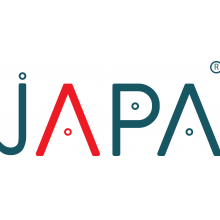The JAPA FRP (Fiber Reinforced Plastic) Chamber Cover is engineered with advanced materials designed to withstand the rigors of various construction applications. Specifically crafted for superior performance in demanding environments, our FRP chamber cover boasts a high strength-to-weight ratio, significantly reducing transportation costs and installation efforts compared to traditional RCC and CI covers. With a durable design that features exceptional corrosion and abrasion resistance, this product is ideal for a range of applications, providing long-lasting service with minimal maintenance requirements. The FRP chamber cover comes in custom sizes and colors, including Ivory, Black, and Grey, allowing businesses to tailor their solutions for specific demands. Not only does this product enhance the aesthetic appeal of infrastructure projects, but it also ensures safety and reliability in terms of load-bearing capabilities, with options available for ratings of 3T, 5T, 12.5T, and up to 60T. The innovative design assures easy handling, making it a favorite amongst construction professionals. Choose JAPA's FRP Chamber Cover for a cost-effective, lightweight, and durable solution to your construction needs.
Key Features
| Features | Description |
|---|---|
| Material | FRP (Fiber Reinforced Plastic) |
| Strength/Weight Ratio | Very High |
| Corrosion Resistance | High |
| Abrasion Resistance | Yes |
| Custom Design/Size | Possible |
| Color Range | Ivory, Black, Grey |
| Load Capacity | 3T, 5T, 12.5T, UP TO 60T |
| Country of Origin | India |
| Attributes | Description |
|---|---|
| Life Span | High |
| Handling | Easy |
| Thermal Expansion | Nil |
| RCC Scrap Value | Low |
| CI Scrap Value | High |
| Logo Embossing | Possible |
| Shape | Square, Rectangle |
| Usage/Application | Construction |
| Brand | JAPA |
| Color Availability | Concrete Gray, Black |
*Disclaimer: The above description has been AI-generated and has not been audited or verified for accuracy. It is recommended to verify product details independently before making any purchasing decisions.
Brand: JAPA
Country Of Origin: India



Inclusive of all taxes
You Save: ₹ 1,100.00

Rajkot, India
Manufacturer, Brand Owner, Distributor, Exporter, Wholesaler
GST- 24AASFJ0712E1ZO